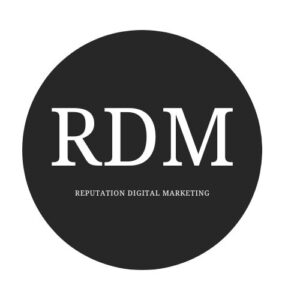Choosing the Right Website for Your Business Model: A Comprehensive Guide
Your website is the digital storefront of your business—often the first impression you make on potential customers. Choosing the right type of website is crucial to effectively showcase your products or services, engage your audience, and drive results. But with so many website options available, how do you decide which one suits your business model?
This guide will walk you through the key considerations and help you make an informed decision.
1. Understand Your Business Model
Start by analyzing your business model and goals. Ask yourself:
- What products or services do you offer?
- Who is your target audience?
- What is the primary purpose of your website? (e.g., selling products, generating leads, or building brand awareness)
- How do your competitors present themselves online?
For example:
- An e-commerce business needs a platform designed to facilitate online transactions.
- A service-based business may require a website that highlights its expertise and generates leads.
- A content-focused business (like a blog or media site) should prioritize ease of content management and user experience.
2. Explore Common Website Types
Here are the most common types of websites and which business models they’re best suited for:
E-Commerce Websites
Ideal for: Retailers, subscription services, and businesses selling physical or digital products.
Features to look for:
- Shopping cart and secure checkout options.
- Product pages with descriptions and images.
- Inventory management.
Popular platforms: Shopify, WooCommerce, BigCommerce.
Portfolio Websites
Ideal for: Creative professionals, freelancers, and agencies.
Features to look for:
- Image galleries and project showcases.
- About and contact pages.
- Responsive, visually appealing design.
Popular platforms: Squarespace, Wix, or WordPress with portfolio themes.
Lead Generation Websites
Ideal for: Service-based businesses, consultants, and B2B companies.
Features to look for:
- Clear calls to action (CTAs).
- Contact forms and scheduling tools.
- Service descriptions and testimonials.
Popular platforms: WordPress, Leadpages.
Informational or Blog Websites
Ideal for: Thought leaders, educators, or businesses focused on content marketing.
Features to look for:
- Easy-to-navigate blog layouts.
- Content management tools.
- SEO-friendly architecture.
Popular platforms: WordPress, Wix, Medium.
Landing Pages or Microsites
Ideal for: Campaigns, product launches, or single-service promotions.
Features to look for:
- Minimal navigation and focused messaging.
- Strong visuals and CTA placement.
Popular platforms: Leadpages, Unbounce, Instapage.
3. Consider Your Budget and Resources
Your budget plays a big role in determining the type of website you can afford. Keep in mind:
- Custom websites provide tailored functionality but come at a higher cost.
- Template-based platforms (like Wix or Squarespace) are cost-effective but may have limitations in scalability or customization.
If you’re unsure, consulting a web development agency or professional can help you determine what’s feasible within your budget.
4. Plan for Growth
Your website should grow with your business. Consider the scalability and flexibility of the platform you choose:
- Can you add more pages or features as your business expands?
- Does the platform support integrations with tools like CRM systems, analytics, or email marketing?
For example, if you plan to expand from a small portfolio website to a full e-commerce store, choose a platform that supports this transition without requiring a complete overhaul.
5. Don’t Forget Design and User Experience (UX)
A visually appealing website with intuitive navigation is essential to retaining visitors. Key design elements include:
- Mobile responsiveness: Ensure your site looks great on all devices.
- Fast loading times: Visitors won’t wait for slow pages.
- Clear branding: Use consistent logos, colours, and messaging.
6. Prioritize Functionality and Security
Your website needs to perform well and protect user data. Features to prioritize include:
- SEO capabilities: Boost visibility on search engines.
- Secure hosting: Protect your site from attacks.
- Analytics tools: Track performance and make data-driven decisions.
Make the Right Choice Today
Choosing the right website for your business is about understanding your needs, your audience, and your goals. Whether you’re launching a new brand, scaling an existing business, or revamping an outdated site, the right website will serve as a powerful tool for success.
If you’re ready to take the next step, our team at Reputation Digital Marketing can help you create a website that aligns perfectly with your business model. Contact us today to get started!

